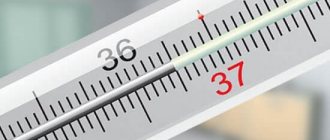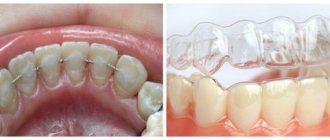Delirium tremens is a dangerous condition that can lead to death or serious mental pathology. According to statistics, chronic alcoholics experience delirium delirium approximately 7-10 years after the onset of addiction with systematic use of large doses of alcohol. Delirium tremens develops gradually, so it can be recognized at the initial stage and help can be called for in a timely manner. If you suspect delirium, you should immediately call a doctor.
Why does delirium delirium occur?
Ethanol has a detrimental effect on the central nervous system and brain cells. With prolonged use of alcohol, a person’s memory is impaired, tremors of the limbs appear, critical thinking and the level of intelligence decrease. Ethyl alcohol affects both physical health and mental health. Relatives and friends notice changes in the patient’s behavior and mood. His mood changes sharply, depression occurs, and suicidal tendencies may appear. The consequences of binge drinking are delirium delirium.
The main cause of delirium tremens is toxic damage to the central nervous system. The following factors contribute to the development of delirium:
- Abrupt withdrawal of alcohol, severe withdrawal syndrome. Alcohol delirium appears precisely after the alcoholic stops drinking. Withdrawal syndrome increases the load on the body. Signs of delirium appear approximately 2-5 days after stopping drinking alcohol.
- Burdened heredity. The presence of alcohol dependence in parents does not mean that the child will necessarily have problems with alcohol. But the likelihood of developing severe alcoholism increases.
- Cavity operations. Any surgical intervention is stressful for the body. After surgery, the person is weakened, and the likelihood of developing severe complications and disorders due to alcohol consumption increases.
- Binges. The longer and more a person drinks, the greater the chance of experiencing delirium delirium.
Delirium tremens often occurs in alcoholics at stage 3 of addiction. If a person has already experienced several attacks of delirium, we can talk about the appearance of an atypical form, which in its symptoms resembles schizophrenia.
It is worth remembering that this condition is life-threatening and does not go away on its own. If delirium tremens occurs, the patient must be immediately hospitalized and undergo a detoxification procedure.
What is this?
Delirium tremens is a dangerous and life-threatening condition that appears to a greater extent in the later stages of alcoholism (second and third). It is included in the International Classification of Diseases and received its code in ICD 10. As a whole, this pathology belongs to the group of withdrawal symptoms. Often this psychotic disorder occurs against the background of existing somatic diseases, which force a person to abruptly stop drinking.
Translated from Latin, this term means “madness.” This most accurately describes the symptomatic complex observed in such patients. According to statistics, about 10% of such cases end in death. Therefore, when the first signs of a disorder appear, you must immediately contact the specialists of our drug treatment clinic.
It should be noted that this pathology occurs not only after prolonged poisoning with alcohol-containing drinks, but also in the following cases:
- Overdose with surrogate alcohol.
- Use against the background of damage to the central nervous system or traumatic brain injury.
However, regardless of the reasons, a person’s behavior begins to change noticeably 1-3 days after the last drink. As a rule, this period lasts for 3-5 days. At this time, a person behaves inappropriately, because of which he can greatly harm others or himself. Therefore, it is strictly forbidden to leave him at home alone.
Stages of alcoholic delirium
This condition develops in stages, over 2-3 days. It is possible to detect delirium tremens at the initial stage and provide timely assistance to the patient. Alcoholic delirium occurs in 3 stages:
- First, the patient exhibits signs of severe intoxication . He experiences nausea, vomiting, and speech becomes confused and incoherent. The limbs tremble, it is difficult for him to control his movements, and convulsions are also possible.
- For the next couple of days, the person sleeps poorly or cannot sleep at all. His anxiety increases, panic appears, unreasonable fears appear, his eyes turn red. He can tell his relatives that he has a presentiment of terrible events, his own death, etc. At the second stage, visual and auditory hallucinations already appear.
- The peak of delirium occurs approximately 3-4 days after quitting alcohol. A person hallucinates , does not perceive reality, he communicates only with imaginary people, creatures, he can feel touch, insects crawling on his skin. This is the most difficult and life-threatening stage, which requires immediate help.
Acute psychosis is especially dangerous for the health and life of the patient. You should consult a doctor as soon as you notice signs of delirium in a person. Delirium tremens has several varieties, but they all develop gradually. At first there is simply panic, and then hallucinations. With occupational delirium, a person begins to perform any activities related to his work, without realizing that he is at home.
The duration of the binge plays a big role. The breakdown products of ethyl alcohol destroy neural connections. The more a person drinks, the more pronounced the consequences will be.
Can delirium be treated at home?
Delirium tremens usually develops over several days. The first symptoms appear 2-3 days after the end of the binge and intensify. Relatives may suspect something is wrong and call an ambulance . This is the best thing that can be done for the patient. You can’t waste time and wait for the condition to normalize on its own.
The first thing to remember is that it is impossible to get rid of delirium at home without medical help. However, you can alleviate the patient's condition before the doctor arrives. You can use the following recommendations :
- Don't make the patient angry. There is no need to try to prove to him that he is having a seizure or schizophrenia; he is not able to adequately perceive someone else's speech. Slapping him in the face, pouring water on him, and screaming will not help him come to his senses, but will only worsen the situation.
- Do not let the patient leave the house. It is better to hold him until the doctors arrive. If the patient goes outside, he may get lost, freeze, or get hit by a car.
- Do not give him unknown drugs and dubious folk remedies. Be careful with painkillers, sedatives, and sleeping pills. It is advisable to wait for the specialists to arrive. If you decide to give the patient the drug, do not exceed the dosage.
- Never give alcohol. Although delirium occurs due to abrupt withdrawal, alcohol should not be given to the patient. This will not help him wake up, but will only increase intoxication and complicate the work of doctors.
Folk remedies cannot completely restore the damaged nervous system and psyche. Sometimes it is recommended to give a decoction of yarrow, wormwood, and bay leaf. You can add honey to the broth; it speeds up the process of removing toxins. However, you need to know for sure that the patient is not allergic to herbs or bee products.
The sooner you recognize delirium and call a doctor, the more likely it is that the patient's mental state will recover. One of the severe consequences of delirium tremens is Wernicke-Korsakoff syndrome. A person may permanently lose their memory. Changes in the brain become irreversible due to damage to the hypothalamus.
Symptoms of delirium tremens
Only a doctor can help a person in such a situation. If you know the signs of delirium tremens, you can call an ambulance in time. It is easier to restore the patient’s mental state in the first stage of delirium. You can notice it by increasing anxiety and sudden mood swings. A person can go from joy and euphoria to deep depression in a minute.
Signs of severe alcoholic delirium include:
- Inability to move normally. The person experiences such severe weakness that he cannot stand up on his own.
- Hyperthermia. The patient begins to have a fever, the temperature rises to 40 degrees. Fever may be accompanied by shortness of breath.
- Coordination problems. A strong tremor appears, and it is difficult for the patient to maintain an even gait.
- Strong excitement. A person cannot concentrate, does not perceive other people’s speech, does not perceive reality.
Symptoms are constantly increasing. Panic increases, limbs tremble more strongly, hallucinations become more obvious. If a person is not treated, the symptoms will intensify and the condition will worsen every hour.
Delirium can occur differently in men and women. There is no clear single symptomatology. How delirium tremens will manifest itself and proceed depends on many factors, for example, the presence of chronic diseases and congenital mental disorders.
Delirium tremens and hallucinosis should not be confused. In the second case, the patient can see objects that do not exist in reality, hear voices, but still contacts others. This condition can resolve on its own and is much less likely to lead to the death of the patient. During delirium, the patient is completely disconnected from reality. He is in his own world and does not react to what is happening around him.
Content:
- What is delirium tremens
- Female delirium tremens
- What is special about delirium tremens in women?
- Symptoms
- Consequences
- Treatment of alcoholic delirium
Many people have heard about such a condition as delirium tremens. It is otherwise called delirium delirium. Many jokes have been made about him. Meanwhile, this is a very serious condition that is worth paying attention to, because sometimes it is life-threatening. We will focus on delirium tremens in women. Like female alcoholism in general, it has its own characteristics.
Consequences
Typically, alcoholic delirium aggravates all chronic diseases a person has. If he had stomach problems, pain and heartburn will appear. Asthmatics begin to choke. The patient's condition can quickly become serious , so you need to get the patient to the clinic as quickly as possible. Treatment is carried out only under the supervision of doctors.
The severe consequences of delirium are:
- Liver and kidney failure;
- Disorders of the cardiovascular system;
- Swelling of brain tissue;
- Chronic mental disorders.
Delirium often leads to suicide and various crimes. Hallucinations can provoke thefts and murders. A person with delirium may harm themselves or family members.
Some effects of delirium tremens are irreversible . For example, if a person shows signs of alcoholic neuropathy (numbness and muscle pain), this can lead to nerve damage that may not fully recover.
Alcohol intoxication leads to damage to internal organs and metabolic disorders. After some time, the body begins to suffer from severe dehydration, which intensifies the painful symptoms.
Manifestation: how to prevent!
How does delirium tremens manifest itself in the third stage? The person does not recognize anyone at all, jumps up and moves chaotically around the room, screams, moans, grabs his head, hides under a bed made of large furnishings. He grabs knives and axes, tries to fight back, and sees imaginary characters of his hallucinations in those around him.
If delirium tremens sets in, in this state the person is dangerous to others, and you can safely call not only an ambulance, but also the police, so that a protocol can be drawn up, which will describe the patient’s actions. Based on protocols and written evidence in court, you can demand an examination and even eventually achieve compulsory treatment for alcoholism.
Delirium tremens syndromes are relieved through deep sleep, into which the person simply falls, but memories after delirium are well preserved.
Delirium tremens cannot be treated by placing a drip, the service to sober up at home will not help you, and delirium tremens is not just a withdrawal from alcohol: it is serious disturbances in the functioning of the entire body - only hospitalization in a hospital!!!
The most terrible consequences of delirium tremens can be:
- Coma, stuporous states.
- Encephalopathy.
- Edema and swelling of the brain.
If the productive symptoms of psychosis do not go away within a month or the duration of delirium tremens is two weeks or more, then intensive complex treatment is required, including spinal punctures, intravenous infusions, and active drug therapy.
Treatment methods
Lack of treatment is very dangerous. Delirium does not go away on its own . Without medical help, a person may remain permanently mentally ill or die. The patient must be constantly monitored until complete recovery. If the patient's condition is critical, the patient is placed in intensive care.
Treatment for alcoholic delirium is as follows:
- First, a detoxification procedure is carried out. The patient is given a drip with a glucose solution, vitamins and various drugs (to normalize the functioning of the heart, liver, kidneys, and nervous system) to speed up the removal of breakdown products of ethyl alcohol from the blood.
- The patient is provided with complete rest. They give him sedatives and sleeping pills so that he can rest. If the patient shows aggression, he needs to be fixed for a certain period of time.
- Symptomatic therapy is also provided to eliminate the consequences of delirium. The patient is given drugs to restore liver cells, strengthen blood vessels, and improve blood circulation.
- The patient is constantly monitored, blood pressure and temperature are measured, and emergency assistance is provided if his indicators worsen.
- Consultation with a psychiatrist is required. To eliminate aggression, anxiety, and hallucinations, the patient is given psychotropic drugs. The duration of treatment depends on the severity of the person’s condition.
Treatment is carried out in a bright room. The light is left on even at night, as darkness and twilight can intensify hallucinations. It is advisable to eliminate the root cause of delirium – alcoholism. Treatment options for addiction are discussed with the patient. The occurrence of delirium tremens is a very alarming sign. If the patient continues to drink, the attacks will recur and intensify. You need to overcome the bad habit and turn to specialists. Long-term binge drinking is life-threatening and can lead to serious damage to internal organs, cirrhosis, stroke and heart attack.
There is no need to waste time and wait for the patient to come to his senses. The sooner he is taken to the clinic, the less likely he is to develop complications.
“Squirrel”: what treatment
Treatment for delirium tremens must be started regardless of what stage of psychosis has developed in the patient. The more severe the condition, the more factors indicating the need to transport the patient to a hospital.
Narcologists and resuscitators dealing with this type of mental disorder provide addicts with:
- Complete rest with the elimination of possible irritants.
- Continuous monitoring with restraint of the patient if necessary and there is a possibility of self-harm or suicide.
- Symptomatic therapy aimed at improving brain activity, restoring water, salt, vitamin balance, relieving seizures, improving cardiovascular activity.
- Therapy of exacerbated chronic diseases.
- Relief of psychomotor agitation with the help of psychotropic drugs.
Along with drug therapy, if the patient has no contraindications, modern treatment methods can be used. Among them are hyperbaric oxygen therapy, physiotherapy methods, and psychological training. Psychotherapeutic influence is carried out only after restoration of reason. Experienced psychotherapists adapt a person, set him up to begin treatment, and admit that he has a problem.
After the patient is discharged from the hospital, we always point out to him the need for further treatment and taking measures to prevent a relapse of delirium tremens.
The only effective method of preventing this psychosis is to stop drinking alcohol. If you see that your loved one has the first signs of fever, provide him with rest and plenty of fluids, give activated charcoal and antipyretics when the temperature rises, and call a narcologist.
A repeated attack should make the person and his family think about the need and importance of continuing treatment, undergoing detoxification, psychological recovery and resocialization.
Is it possible to cure a sick person at home?
The only thing loved ones can do to help a person with delirium tremens is to call a doctor as quickly as possible. Suggestion and folk methods will not help in this case. You cannot disturb the patient or slap him in the face so that he comes to his senses. You shouldn't shout and prove to him that he has schizophrenia. At best, the patient will not perceive the information.
It is advisable not to let the patient go outside and constantly monitor his behavior until the doctors arrive. In this state, he can harm himself, get lost or freeze. Self-medication can be dangerous if you give drugs to a patient without consulting a doctor. An overdose of sleeping pills or sedatives will only worsen the situation. If you do give a patient a sedative, read the instructions carefully first and do not exceed the recommended dosage.
Despite the fact that delirium occurs against the background of withdrawal syndrome, the patient should not be given alcohol. This will not help return him to a normal state, but will only complicate the detoxification procedure for doctors, since the IV is placed on the condition that there is no alcohol in the stomach.
Giving water to a person with delirium is also useless. You can give him something to drink to reduce the effects of dehydration, but in small portions. Large amounts of water will cause vomiting.
Herbal decoctions will calm you down a little, but will not solve the problem completely. You can give an infusion of yarrow, wormwood, but not alcohol tinctures. First you need to make sure that the patient does not have an allergic reaction to these herbs.
Treatment methods
It is not advisable to treat alcoholic delirium at home; immediately contact a medical facility. Just in case, your home first aid kit should have:
- phenobarbital tablets;
- distilled water;
- medical alcohol.
All components are mixed, and the resulting mixture is given to the patient. In severe cases, you can give a person 30 grams of pharmaceutical alcohol, but this is not safe.
Traditional medicine can also help:
- tincture of lovage root and bay leaf;
- a decoction of a special-purpose herbal collection;
- tincture of wormwood and yarrow.
Herbal infusions and tinctures relieve fever. Natural honey is rich in potassium, and its deficiency is associated with cravings for alcohol. If during an attack you give 6 teaspoons every 20 minutes, this will alleviate the condition and restore sleep.
What to do if a person has delirium tremens
Treatment of alcoholic delirium at home can be dangerous for a person!
Patients with delirium tremens are often unable to take care of themselves - deteriorating physical condition and constant hallucinations confuse the mind. A person often does not understand what is happening to him and cannot take the simplest action - call an ambulance. Therefore, responsibility falls largely on loved ones.
Have you noticed that when a person suddenly quits drinking alcohol, the addict exhibits symptoms that are not typical of “normal” withdrawal symptoms? Especially an epileptic attack - as experience shows, delirium tremens will almost certainly begin in the evening. Therefore, call an ambulance immediately. Any of your actions aimed at home treatment of delirium tremens can have negative consequences for the health of the addict. This especially applies to taking antibiotics that you want to alleviate the condition of a person suffering from delirium tremens. The addict needs immediate professional help.
All that is recommended to do if a person has delirium tremens is to put him to bed and wait for the ambulance to arrive. If the patient becomes aggressive, you can tie him up without blocking the airway. [4]
Literature:
- Alcoholic delirium and delirious-oneiric psychoses of complex structure / K.G. Danielyan. - Yerevan: Hayastan, 1977. - 132 p.
- Treatment of severe forms of alcoholic delirium: Method. recommendations / Ministry of Health of the BSSR, Ex. treatment and prophylaxis help; [Comp. G. A. Obukhov and others]. - Minsk: B. i., 1983. - 22 p.
- Emergency diagnosis and methods of relieving alcoholic delirium, withdrawal syndrome and convulsive paroxysms: Method. recommendations / Kharkiv. Research Institute of Neurology and Psychiatry; [N. I. Protasevich and others]. - Kharkov: B. i., 1988. - 13 p.
Stages of the disease
Delirium tremens lasts on average 3-5 days. In narcology, it is customary to distinguish 3 stages of the disease. [3]
| Stage 1 (threatening delirium) | Hallucinations begin to appear mainly in the evening. At first, these are unclear visual illusions and increased anxiety, which further increase the patient’s sensitivity to external stimuli. The person is restless, practically does not sleep, does not eat at all, and talks to himself. There is a slight increase in body temperature and sweating. If an addict at the initial stage of delirium begins to drink again, then all symptoms gradually go away |
| Stage 2 (complete delirium) | Hallucinations become more and more vivid. Stories from patients about delirium tremens prove that these can be a variety of illusions - dead relatives, movie characters, friends, mythical creatures, animals. Hallucinations become so realistic that a person may completely lose touch with reality. The body temperature becomes higher, the heart rate increases to critical levels. The patient may become aggressive because the hallucinations frighten him. Alcoholic delirium at stage 2 cannot be cured on its own. Immediate medical intervention is required |
| Stage 3 (life-threatening delirium) | The patient's nervous excitement decreases. Delirium tremens during this period manifests itself in completely incoherent speech. Severe cramps may occur periodically. Hallucinations continue, accompanied by simple stereotypical actions - flapping limbs, turning the head, moving the lips. A person ceases to understand who he is and where he is. May not recognize loved ones, fall into epileptic seizures. The patient's depressed state progresses. Cerebral edema may develop, which can lead to coma and further death. |









